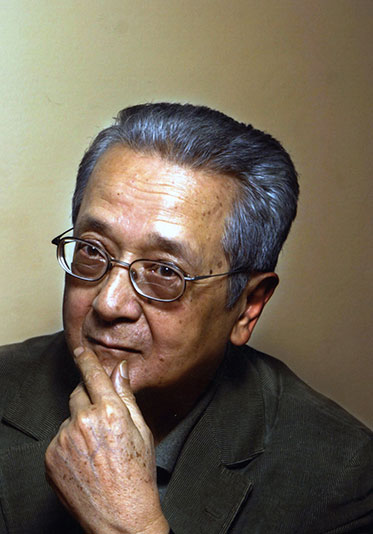Diabolique
 Tuesday, December 7, 2010 at 14:15
Tuesday, December 7, 2010 at 14:15  It may surprise the casual reader to learn of my laudatory remarks for a remake that, like so many second attempts, has not met with the same critical approval as its original. Now the original, despite its primitive effects, is certainly a fine film; what it lacks, however, is an awareness of its sleaziness and how essential this element remains for its ambience. The ambience of the first Diaboliques (the 's' omitted in the American release and the remake) borders on the supernatural, which is undoubtedly effective, although much of this can be imputed to the grainy quality of what we happen to be watching. The scenes are always poorly lit; the shadows always seem to be acquiring more territory. Those who really love older films will detect a prejudice that I have never been able to conceal: for films, unlike for books, the quality of what of you’re taking in hinges greatly on advances in technology. That is not to say that older films are inherently inferior (howls of indignation are already surging from every movie critic over the age of forty), but the very joy that we derive from film, especially in the theater, is forgetting we are moviegoers because we have become bystanders. We are among the conflicted crowds lining the stations of Christ’s passion; among the cohorts of Mozart’s performance for the emperor; customers in the same bar that Ali and Emmi begin their sad waltz through life. Our enjoyment should not be impeded by a crackling, uncolored screen, makeshift props, or the artificial sound editing that so plagued early cinema that everyone sounded like everyone else or some grotesque cartoon (or, at worst, like both). I have readied myself for my cinematic excommunication and turn happily to this entertaining film.
It may surprise the casual reader to learn of my laudatory remarks for a remake that, like so many second attempts, has not met with the same critical approval as its original. Now the original, despite its primitive effects, is certainly a fine film; what it lacks, however, is an awareness of its sleaziness and how essential this element remains for its ambience. The ambience of the first Diaboliques (the 's' omitted in the American release and the remake) borders on the supernatural, which is undoubtedly effective, although much of this can be imputed to the grainy quality of what we happen to be watching. The scenes are always poorly lit; the shadows always seem to be acquiring more territory. Those who really love older films will detect a prejudice that I have never been able to conceal: for films, unlike for books, the quality of what of you’re taking in hinges greatly on advances in technology. That is not to say that older films are inherently inferior (howls of indignation are already surging from every movie critic over the age of forty), but the very joy that we derive from film, especially in the theater, is forgetting we are moviegoers because we have become bystanders. We are among the conflicted crowds lining the stations of Christ’s passion; among the cohorts of Mozart’s performance for the emperor; customers in the same bar that Ali and Emmi begin their sad waltz through life. Our enjoyment should not be impeded by a crackling, uncolored screen, makeshift props, or the artificial sound editing that so plagued early cinema that everyone sounded like everyone else or some grotesque cartoon (or, at worst, like both). I have readied myself for my cinematic excommunication and turn happily to this entertaining film.
The venue for our mystery is a small private school for boys somewhat outside of Pittsburgh. Despite its modest size and the fact that it is run by a scumbag named Guy Baran (Chazz Palminteri), the establishment seems to be prospering, as can be assumed from its large swimming pool, Guy’s wardrobe, and the menu selections at the teachers’ table. Two of these scholars are of particular interest: Guy’s wife Mia (the breathtaking Isabelle Adjani), who imparts history and her native French to her starry-eyed boarders, and Nicole Horner (Sharon Stone) who splits her time between algebra and Guy’s office hours. As can be expected, truths gradually surface that do not cast our dear principal in a pleasing light: the school is not actually making any money, he couldn’t actually care any less about his wife (a sure sign of insanity), and Mia’s actually the owner, the financier, and the one on whom everything and everyone depend. Nicole’s prurience is matched only by Mia’s naïveté and hypochondria, which doesn’t prevent women like that – in the movies or real life – from becoming confidantes. Nor, I should add, from hatching a scheme that will lead, usually only in the movies, to a ridiculous series of twists involving Guy, that swimming pool, and some heart pills prescribed to Mia. Yes, she’s a hypochondriac. But she also may drop dead at any moment from a bad heart, and I will stop the insinuations right about there.
Some may think that two women plotting to kill a faithless cad a glamorous venture into feminist noir, but I will have to disappoint them (and since I’m a heretic, it shouldn’t matter). What the original Diaboliques did so frightfully well was convince the viewer that what he was watching could very well be a ghost story; admitting this point hardly gives anything away. Yet the essence of both the original and remake is the unabashed immorality on the part of all involved (including, in the remake, law enforcement officials), a staple of the noir genre. The genre of endless compacts and endless betrayals, a realm whose inhabitants can only act and think at various levels of deceit, is the true incarnation of Darwinian principles taken to their extreme. Diabolique has no pretension to great art, which is exactly what allows it to transcend the trash that its genre usually produces and move, with great alacrity, into self-parody. The ending is both ridiculous and a parody of all ridiculous endings; the characters so infused with malice that they become both devils and mocking actors in a sinister play about thirsty lusts; the policewoman (a dazed Kathy Bates) both jaded and ingenuous. For all its shortcomings, the film is fearlessly stylish and the acting (especially the despicable turn by Palminteri) incorporates every bad thing about bad people that reminds us yet again of the incorrigible banality of evil. Since few remakes can hope to improve upon their forerunners, the contents, the details, and, most importantly, the texture must be altered to work on very different terms. A timid form of blasphemy, that.




